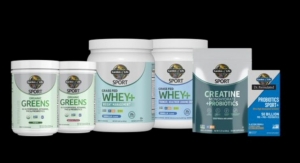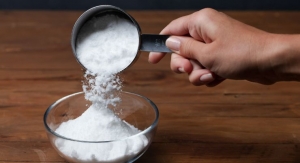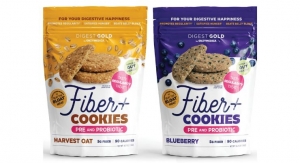Stan Glab & Missy Lowery, Senior Formulator & Senior Manager, Marketing, Capsugel10.03.16
Consumers everywhere are looking to live longer, better and wiser. These goals are challenged, however, by rising healthcare costs and whirlwind lifestyles that cause people to compromise balanced nutrition with on-the-go eating, and to squeeze exercise in around busy work and family schedules. As a result, consumers increasingly are seeking dietary supplements to maintain good health and promote fitness.
In particular, consumers are gravitating toward ingredients within certain supplement platforms based on their perceptions that products can improve their well-being. These platforms include digestive health, active nutrition/sports nutrition, healthy aging and nutritional oils.
Manufacturers and marketers would be wise to understand that dosage forms for delivery of these ingredients can make as big a difference in consumer satisfaction as the ingredients themselves. In fact, delivery forms can maximize the potential benefit of those ingredients.
Consumer Trends
Today’s busy consumers look for easy-to-use formats. Healthy lifestyle consumers are also hungry for anything they perceive to be “clean label.” They particularly want reassurance that a delivery technology can help an ingredient work for them.
Capsules in general align with all of these trends. Even with the rise of novelty delivery systems, capsules are still the top choice for 42% of supplement users, according to the Natural Marketing Institute’s 2015 Supplements, Over-the-Counter, and Rx Database (SORD) study.
Encapsulated supplements are convenient to carry and use, are easy to swallow, and can deliver on the clean label promise. Unlike tablets, they can be free of excipients, binders, fillers and disintegrants. Capsules also come without allergens, preservatives, artificial colorants, lactose and gluten, and they can be non-GMO certified.
Vegetarian capsules, in particular, have been growing in popularity because of the clean label movement; 44% of supplement users want a vegetarian source, according to the SORD study. Vegetarian capsules can come with additional certifications that reinforce the clean label message for this booming healthy lifestyle market.
Ultimately, capsules offer consumers a wide range of creative technologies that can support the effectiveness of ingredients by addressing specific delivery challenges. This is particularly true for technologies of hard capsules, whether they are made of gelatin, vegetarian or fish polymers. Among these technologies are those designed to bolster stability through moisture protection, enhance and preserve bioavailability, and offer timed or targeted release of ingredients for maximum effect.
This article discusses the primary delivery challenges of key ingredients in four emerging health platforms, and the unique hard capsule technologies that can address those issues, including those of vegetarian capsules that offer the added benefit of lifestyle market appeal.
Digestive Health
Sales of probiotic supplements are expected to remain healthy after years of exponential growth. Currently, 15% of supplement users take them, up from 1% in 2005, according to the SORD study. Probiotics are bacteria that improve the body’s microbial balance for better digestion and are known to bolster the immune system for overall well-being.
Sales of digestive enzymes and prebiotics are expected to grow as well, as consumers better understand their benefits for digestion. This is especially true for physically active people and aging adults whose bodies do not naturally produce enzymes in the pancreas and small intestines as efficiently.
Delivered primarily through capsule, tablet and sachets forms, probiotics are prone to early activation if exposed to moisture while in packaging. Both probiotics and some enzymes can be damaged by stomach acids in the digestive process before they reach the intestines where they work best.
Vegetarian capsules made from hydroxypropyl methylcellulose (HPMC) offer both delayed release properties as well as moisture protection for probiotics and enzymes. Because HPMC is low in moisture content (4-6% moisture at 50% relative humidity compared to 12-14% for gelatin), the HPMC polymer can help shield ingredients from moisture in the package that can trigger premature activation before ingestion.
Another HPMC vegetarian capsule has incorporated unique acid-resistant polymer properties that slow disintegration after swallowing. The innovative polymer protects the capsule from opening in the stomach’s acidic environment, dissolving only when the pH rises above 6.8—the average pH level of entry into the intestines. An independent in vivo gamma scintigraphy study showed the capsules begin to release in a mean time of 52 minutes after ingestion, and when they were about to leave the stomach.
A third highly original vegetarian capsule technology addresses the complicated delivery issues of combining a prebiotic-probiotic supplement. Digestive health can be enhanced when prebiotics, which feed beneficial bacteria, are taken before probiotics. Both ingredients can be delivered at different intervals via a capsule-within-a-capsule technology that offers both a synergistic digestive effect and also moisture protection to prevent early activation of the probiotic.
The inner capsule contains a probiotic, which is then suspended in a solubilized prebiotic formula that is released first when the outer capsule dissolves. For enhanced moisture protection, both capsules are composed of plant-based HPMC. The prebiotic is suspended in a glycerol solution with low-water activity. Both inner and outer capsules are hermetically sealed. The inner capsule with the probiotic culture takes longer to fully dissolve, helping to improve its ability to reach the intestinal tract.
Active/Sports Nutrition
The booming sports nutrition market is expected to continue attracting mainstream consumers. A wider range of supplements are now in demand as the market evolves beyond just elite athletes. These products are attracting the active nutrition crowd of weekend warriors and fitness enthusiasts who want to feel and function well during and after workouts, as well as Baby Boomers who want to keep active and healthy.
Hardcore competitors will continue to embrace ingredients such as L-carnitine, ubiquinol, L-arginine, amino acids and creatine to support their performance and recovery. The active nutrition segment will more likely gravitate toward supplements that can address weight control, metabolism, digestion, energy, sleep and cardiovascular health.
The key delivery challenges in this category are acid sensitivity, timed and targeted delivery, and stability and bioavailability of ingredients. Low-moisture HPMC capsules and their acid-protection counterparts are excellent for enzymes, including amalyse, protease, lipase, alpha-galactosidase, bromelain, Enzidase and Isolase. They are also great for delivery of amino acids, the building blocks of protein that help support endurance during workouts and boost muscle recovery. Amino acids such as SAMe, L-glutathione, L-carnosine and betaine hydrochloride are very sensitive to stomach acids and can be compromised before being absorbed in the intestines.
Again, these capsules are ideal for delivery of moisture- and acid-sensitive probiotics, which this market looks to for additional perceived benefits of staving off respiratory infections, improving aerobic fitness, managing inflammation, and enhancing amino acid uptake and absorption.
One technology that can protect the stability and effectiveness of liquids that are prone to degrade from oxygen exposure is a hard capsule flushed with nitrogen during filling and then hermetically sealed to keep oxygen out. Polymer choices can be gelatin or vegetarian.
Resveratrol, or red wine extract, which is used to manage weight and increase endurance, is highly unstable in oxygen, but the hard capsule shell ensures no oxygen migration. HMB (beta-Hydroxy-beta-methylbutyrate), which has been researched for its role in increasing muscle mass and reducing muscle breakdown and wasting, can be formulated in a free acid form and remain stable in the hard shell capsule. L-carnitine, a naturally occurring amino acid-like nutrient essential for energy production and important for heart and brain function, can be fully solubilized at 500 mg in a single dose and protected in a sealed hard capsule. L-arginine, a precursor to nitric oxide that causes blood vessel relaxation for a positive cardiovascular effect, can be turned into a free-flowing suspension through micronization and solubilization for delivery in a sealed hard capsule.
Healthy Aging
Mature and Boomer generation consumers have become increasingly proactive about health as they age. These population segments are the heaviest supplement users in this category. Ninety three percent take multivitamins (among current users of VMS), 36% take omega-3s or lutein, and 20% take condition-specific supplements, with their concerns revolving around joint/bone health, heart health, immune health and digestive health, according to SORD study data. Sports nutrition ingredients such as HMB have recently been added to liquid meal replacements—an indication that energy and increasing muscle mass are also gaining attention.
Selecting the right dosage form has become more important to increase bioavailability, target or time release, and protect ingredients from oxidation or degradation. With enzyme replacement therapies and added amino acids, formulators need to ensure that ingredients are able to withstand stomach acid and release at the appropriate time—hence the benefit of the HPMC capsules. The nitrogen-flushed, sealed hard capsule can provide better stability and preserve potency for many oxygen-sensitive carotenoids taken for eye and heart health. Taken for energy, muscle protection and inflammation, CoQ10—when solubilized and also delivered in a nitrogen-flushed, sealed hard capsule—was shown in a clinical study to have a 30% higher bioavailability than a suspension delivered in a softgel, a powder-filled capsule or a tablet.
An interesting timed release benefit is achieved via a beads-in-a-liquid-filled capsule, for example, in a sleep-support melatonin supplement. The inner capsule is filled with melatonin timed-release beadlets; it is suspended in a liquid melatonin-filled outer capsule. The outer capsule releases immediately providing quick sleep response, while the inner capsule melatonin beads of different sizes and thickness of coatings dissolve at intervals to promote an uninterrupted restful sleep, something many people have trouble maintaining.
Nutritional Oils
Euromonitor International has estimated the healthy oils market in the U.S. is approximately $1.3 billion. New product development is driven in part by new oil sources. Plant-based oils, in particular, are expected to see 8% CAGR at constant 2015 prices through 2020.
For all users, these oils can generally support immune, cardiovascular, eye, brain, skeletal and central nervous system health. For some of the oils, the top challenge is to minimize or eliminate burp-back without the use of additives; for others, it is to manage the pungent smell in the bottle. For all oils, the main concern is to minimize oxidation that produces the smell and can affect stability, which can ultimately reduce the ingredient’s therapeutic efficacy. When encapsulating a high concentrate versus a typical 18:12 formula, marketers need to consider stability, in particular; the higher the concentration, the more physically unstable it becomes, making it more prone to degradation, especially oxidation.
Although softgels have been the standard delivery format for nutritional oils, they contain plasticizers that create microchannels in gelatin. This allows oxygen to enter, pungent odors to seep out, odd tastes to jolt the palate, and has the potential for cross linking or ingredient migration—compromising the integrity of the product.
A superior delivery form is a nitrogen-flushed, hermetically sealed hard gelatin capsule. This technology protects against degradation and/or leakage, promoting stability for longer shelf life and odor and taste control. There is also now an HPMC capsule available that is Non-GMO Project Verified and a Pullulan Non-GMO Project Verified capsule in development.
Dosage Delivery Form Matters
Regardless of the ingredient, the right dosage delivery form for that ingredient can give a product the extra edge needed to win consumers over and over again. Today, three qualities are paramount: convenience, effectiveness, and clean label. Hard capsules check all these boxes, though enhancing effectiveness can be the most challenging to achieve. Fortunately, there are enough creative technologies for hard capsules to make a big difference for consumers and product developers.
Capsugel is a leading provider of capsules and innovative dosage form solutions. For more information: www.capsugel.com; missy.lowery@capsugel.com
In particular, consumers are gravitating toward ingredients within certain supplement platforms based on their perceptions that products can improve their well-being. These platforms include digestive health, active nutrition/sports nutrition, healthy aging and nutritional oils.
Manufacturers and marketers would be wise to understand that dosage forms for delivery of these ingredients can make as big a difference in consumer satisfaction as the ingredients themselves. In fact, delivery forms can maximize the potential benefit of those ingredients.
Consumer Trends
Today’s busy consumers look for easy-to-use formats. Healthy lifestyle consumers are also hungry for anything they perceive to be “clean label.” They particularly want reassurance that a delivery technology can help an ingredient work for them.
Capsules in general align with all of these trends. Even with the rise of novelty delivery systems, capsules are still the top choice for 42% of supplement users, according to the Natural Marketing Institute’s 2015 Supplements, Over-the-Counter, and Rx Database (SORD) study.
Encapsulated supplements are convenient to carry and use, are easy to swallow, and can deliver on the clean label promise. Unlike tablets, they can be free of excipients, binders, fillers and disintegrants. Capsules also come without allergens, preservatives, artificial colorants, lactose and gluten, and they can be non-GMO certified.
Vegetarian capsules, in particular, have been growing in popularity because of the clean label movement; 44% of supplement users want a vegetarian source, according to the SORD study. Vegetarian capsules can come with additional certifications that reinforce the clean label message for this booming healthy lifestyle market.
Ultimately, capsules offer consumers a wide range of creative technologies that can support the effectiveness of ingredients by addressing specific delivery challenges. This is particularly true for technologies of hard capsules, whether they are made of gelatin, vegetarian or fish polymers. Among these technologies are those designed to bolster stability through moisture protection, enhance and preserve bioavailability, and offer timed or targeted release of ingredients for maximum effect.
This article discusses the primary delivery challenges of key ingredients in four emerging health platforms, and the unique hard capsule technologies that can address those issues, including those of vegetarian capsules that offer the added benefit of lifestyle market appeal.
Digestive Health
Sales of probiotic supplements are expected to remain healthy after years of exponential growth. Currently, 15% of supplement users take them, up from 1% in 2005, according to the SORD study. Probiotics are bacteria that improve the body’s microbial balance for better digestion and are known to bolster the immune system for overall well-being.
Sales of digestive enzymes and prebiotics are expected to grow as well, as consumers better understand their benefits for digestion. This is especially true for physically active people and aging adults whose bodies do not naturally produce enzymes in the pancreas and small intestines as efficiently.
Delivered primarily through capsule, tablet and sachets forms, probiotics are prone to early activation if exposed to moisture while in packaging. Both probiotics and some enzymes can be damaged by stomach acids in the digestive process before they reach the intestines where they work best.
Vegetarian capsules made from hydroxypropyl methylcellulose (HPMC) offer both delayed release properties as well as moisture protection for probiotics and enzymes. Because HPMC is low in moisture content (4-6% moisture at 50% relative humidity compared to 12-14% for gelatin), the HPMC polymer can help shield ingredients from moisture in the package that can trigger premature activation before ingestion.
Another HPMC vegetarian capsule has incorporated unique acid-resistant polymer properties that slow disintegration after swallowing. The innovative polymer protects the capsule from opening in the stomach’s acidic environment, dissolving only when the pH rises above 6.8—the average pH level of entry into the intestines. An independent in vivo gamma scintigraphy study showed the capsules begin to release in a mean time of 52 minutes after ingestion, and when they were about to leave the stomach.
A third highly original vegetarian capsule technology addresses the complicated delivery issues of combining a prebiotic-probiotic supplement. Digestive health can be enhanced when prebiotics, which feed beneficial bacteria, are taken before probiotics. Both ingredients can be delivered at different intervals via a capsule-within-a-capsule technology that offers both a synergistic digestive effect and also moisture protection to prevent early activation of the probiotic.
The inner capsule contains a probiotic, which is then suspended in a solubilized prebiotic formula that is released first when the outer capsule dissolves. For enhanced moisture protection, both capsules are composed of plant-based HPMC. The prebiotic is suspended in a glycerol solution with low-water activity. Both inner and outer capsules are hermetically sealed. The inner capsule with the probiotic culture takes longer to fully dissolve, helping to improve its ability to reach the intestinal tract.
Active/Sports Nutrition
The booming sports nutrition market is expected to continue attracting mainstream consumers. A wider range of supplements are now in demand as the market evolves beyond just elite athletes. These products are attracting the active nutrition crowd of weekend warriors and fitness enthusiasts who want to feel and function well during and after workouts, as well as Baby Boomers who want to keep active and healthy.
Hardcore competitors will continue to embrace ingredients such as L-carnitine, ubiquinol, L-arginine, amino acids and creatine to support their performance and recovery. The active nutrition segment will more likely gravitate toward supplements that can address weight control, metabolism, digestion, energy, sleep and cardiovascular health.
The key delivery challenges in this category are acid sensitivity, timed and targeted delivery, and stability and bioavailability of ingredients. Low-moisture HPMC capsules and their acid-protection counterparts are excellent for enzymes, including amalyse, protease, lipase, alpha-galactosidase, bromelain, Enzidase and Isolase. They are also great for delivery of amino acids, the building blocks of protein that help support endurance during workouts and boost muscle recovery. Amino acids such as SAMe, L-glutathione, L-carnosine and betaine hydrochloride are very sensitive to stomach acids and can be compromised before being absorbed in the intestines.
Again, these capsules are ideal for delivery of moisture- and acid-sensitive probiotics, which this market looks to for additional perceived benefits of staving off respiratory infections, improving aerobic fitness, managing inflammation, and enhancing amino acid uptake and absorption.
One technology that can protect the stability and effectiveness of liquids that are prone to degrade from oxygen exposure is a hard capsule flushed with nitrogen during filling and then hermetically sealed to keep oxygen out. Polymer choices can be gelatin or vegetarian.
Resveratrol, or red wine extract, which is used to manage weight and increase endurance, is highly unstable in oxygen, but the hard capsule shell ensures no oxygen migration. HMB (beta-Hydroxy-beta-methylbutyrate), which has been researched for its role in increasing muscle mass and reducing muscle breakdown and wasting, can be formulated in a free acid form and remain stable in the hard shell capsule. L-carnitine, a naturally occurring amino acid-like nutrient essential for energy production and important for heart and brain function, can be fully solubilized at 500 mg in a single dose and protected in a sealed hard capsule. L-arginine, a precursor to nitric oxide that causes blood vessel relaxation for a positive cardiovascular effect, can be turned into a free-flowing suspension through micronization and solubilization for delivery in a sealed hard capsule.
Healthy Aging
Mature and Boomer generation consumers have become increasingly proactive about health as they age. These population segments are the heaviest supplement users in this category. Ninety three percent take multivitamins (among current users of VMS), 36% take omega-3s or lutein, and 20% take condition-specific supplements, with their concerns revolving around joint/bone health, heart health, immune health and digestive health, according to SORD study data. Sports nutrition ingredients such as HMB have recently been added to liquid meal replacements—an indication that energy and increasing muscle mass are also gaining attention.
Selecting the right dosage form has become more important to increase bioavailability, target or time release, and protect ingredients from oxidation or degradation. With enzyme replacement therapies and added amino acids, formulators need to ensure that ingredients are able to withstand stomach acid and release at the appropriate time—hence the benefit of the HPMC capsules. The nitrogen-flushed, sealed hard capsule can provide better stability and preserve potency for many oxygen-sensitive carotenoids taken for eye and heart health. Taken for energy, muscle protection and inflammation, CoQ10—when solubilized and also delivered in a nitrogen-flushed, sealed hard capsule—was shown in a clinical study to have a 30% higher bioavailability than a suspension delivered in a softgel, a powder-filled capsule or a tablet.
An interesting timed release benefit is achieved via a beads-in-a-liquid-filled capsule, for example, in a sleep-support melatonin supplement. The inner capsule is filled with melatonin timed-release beadlets; it is suspended in a liquid melatonin-filled outer capsule. The outer capsule releases immediately providing quick sleep response, while the inner capsule melatonin beads of different sizes and thickness of coatings dissolve at intervals to promote an uninterrupted restful sleep, something many people have trouble maintaining.
Nutritional Oils
Euromonitor International has estimated the healthy oils market in the U.S. is approximately $1.3 billion. New product development is driven in part by new oil sources. Plant-based oils, in particular, are expected to see 8% CAGR at constant 2015 prices through 2020.
For all users, these oils can generally support immune, cardiovascular, eye, brain, skeletal and central nervous system health. For some of the oils, the top challenge is to minimize or eliminate burp-back without the use of additives; for others, it is to manage the pungent smell in the bottle. For all oils, the main concern is to minimize oxidation that produces the smell and can affect stability, which can ultimately reduce the ingredient’s therapeutic efficacy. When encapsulating a high concentrate versus a typical 18:12 formula, marketers need to consider stability, in particular; the higher the concentration, the more physically unstable it becomes, making it more prone to degradation, especially oxidation.
Although softgels have been the standard delivery format for nutritional oils, they contain plasticizers that create microchannels in gelatin. This allows oxygen to enter, pungent odors to seep out, odd tastes to jolt the palate, and has the potential for cross linking or ingredient migration—compromising the integrity of the product.
A superior delivery form is a nitrogen-flushed, hermetically sealed hard gelatin capsule. This technology protects against degradation and/or leakage, promoting stability for longer shelf life and odor and taste control. There is also now an HPMC capsule available that is Non-GMO Project Verified and a Pullulan Non-GMO Project Verified capsule in development.
Dosage Delivery Form Matters
Regardless of the ingredient, the right dosage delivery form for that ingredient can give a product the extra edge needed to win consumers over and over again. Today, three qualities are paramount: convenience, effectiveness, and clean label. Hard capsules check all these boxes, though enhancing effectiveness can be the most challenging to achieve. Fortunately, there are enough creative technologies for hard capsules to make a big difference for consumers and product developers.
Capsugel is a leading provider of capsules and innovative dosage form solutions. For more information: www.capsugel.com; missy.lowery@capsugel.com




























